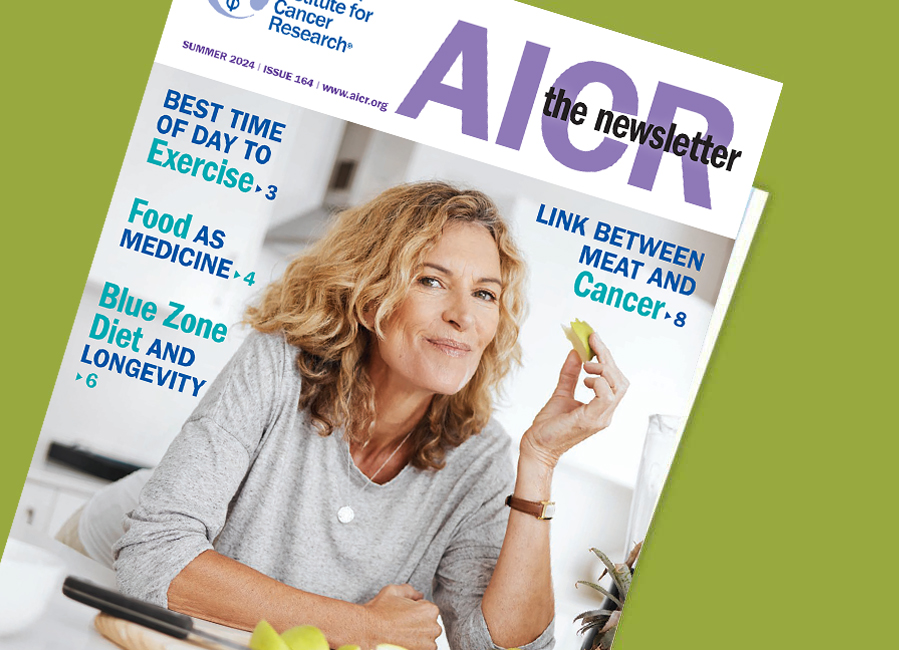How are you ringing in the New Year – with a few friends at home or out on Times Square? Whatever your plan, you want to celebrate and maybe drink a toast to the New Year. But maybe after weeks of holiday festivities, you’re not feeling like overdoing on food and drink.
If you want to indulge in one glass of Champagne, that one midnight bubbly won’t break your calorie bank or exceed the healthy limit for alcohol. But if you party for several hours, those pre-midnight beverages can add up. With a little planning though, you can still stick with AICR’s recommendation to lower your cancer risk: limit your alcoholic drinks to no more than one drink per day for women, two for men.
Going Out Plan:
Look for the low or non-calorie drinks – grab choices like sparkling waters, sugar-free sodas and tea. Or put a splash of wine or juice into a glass of sparkling or soda water for a light spritzer. And focus on dancing – you can stay active and not need to have a drink in your hand all night.
Hosting Plan:
Get creative and become a mixologist or let your guests try their hand at mixology. Offer a “Create Your Own Beverage Bar” starting with a variety of pretty glasses and stemware along with these colorful and tasty ingredients:
(plain or flavored; sugar-free)
• Club soda or seltzer water
• Sparkling and mineral waters
• Tonic water
Flavors
• Fruit juices and nectars – pomegranate, citrus, apricot
• Coconut water
• Teas (black, green, white, chai)
• Wine
• Liquors
Healthy Enhancers
• Herbs – mint, basil, rosemary, thyme, sage
• Fresh or frozen fruits, whole or sliced; berries, melon, pomegranate seeds
• Citrus peels and slices of lemon, lime, grapefruit or orange
• Chopped fruit: apples, mangoes, papaya, pineapple
• Flavored ice cubes: green tea, 100% fruit juice, chopped fruit
You and your guests can have fun creating new combos and maybe hit on some ideas that will help you work toward a healthier weight for lower cancer risk and better overall health or just add color and flavor to your drinks.
Please share your healthy creations with us and have a happy healthy New Year!
For more healthy drink inspiration, check out our Healthy Beverage Recipes.







I can’t believe this article suggests sugar free drinks, the chemicals that replace the sugar are worst than sugar, an RD from AICR should know better.
Hi Lisa,
Thank you for your comment. Strong research shows that sugar-sweetened drinks increase risk for having obesity which is, in turn, a risk factor for several types of cancer. Alcohol also increases risk for a number of cancer types. There is not strong evidence linking artificial sweeteners to cancer risk, but there may be other concerns with these sweeteners if used regularly over a long time. While we do encourage people to choose waters, unsweetened tea and coffee most of the time, different strategies work for different people as they work to cut back on sweetened drinks and/or alcohol.